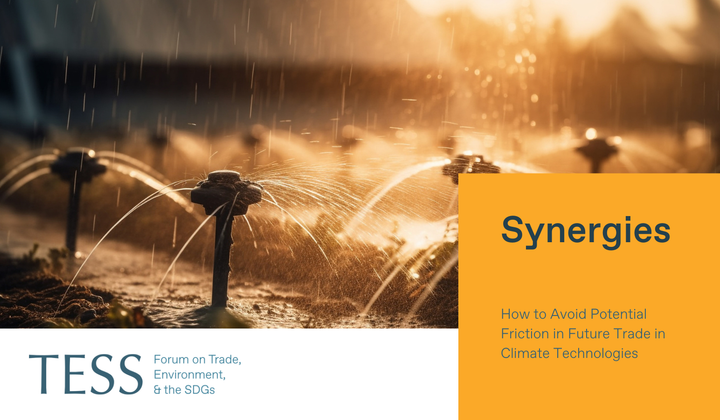TESS convened an informal roundtable bringing together a group of delegates from different regions and countries with different development levels to share perspectives on green industrial subsidies and sustainable development, as well as priorities and prospects for international cooperation.
With the growing recognition that addressing environmental threats such as climate change, pollution or biodiversity loss will require a rapid change in global production and consumption patterns, environmental considerations are increasingly shaping debates on economic policies. In light of persisting market failures, a variety of stakeholders are calling for effective incentives to scale up technological innovation, promote more efficient and sustainable use of resources, and support the net zero transition. Meanwhile, low-income countries with limited fiscal space have insisted on the need for a fair transition to respond to the development imperatives of vulnerable economies and ensure that no one is left behind.
At the international level, this debate is increasingly crystalizing around the use of green industrial subsidies and their possible trade and development effects. Some argue that environmental subsidies could significantly contribute to addressing the current climate, pollution and biodiversity crises and should not be unduly constrained by WTO disciplines. Others point to the negative economic externalities that could result from such support and fear that they could exacerbate trade frictions, undermine development opportunities, and ultimately create a chilling effect on environmental progress and cooperation. Still others call for greater exploration of how green industrial subsidies could be designed in ways that support economic opportunities in developing countries and participation in value chains central to the net zero transition.
Striking the right balance between the potential positive benefits of green industrial subsidies for climate action and their potential production and trade distorting effect will require inclusive international cooperation. The overarching aim of this informal roundtable was to provide an informal space in a non-negotiating setting for delegates to reflect on recent policy developments in different jurisdictions, share views on sustainable development considerations, highlight areas where further information and analysis might be required, and identify opportunities for international cooperation. After a short introduction by external experts highlighting different perspective and development in this area, the floor opened for an off-the-record interactive discussion among delegations.
Agenda
Introduction and Welcome remarks
- Carolyn Deere Birkbeck, TESS
Setting the Scene
Discussion starters
- David Kleimann, Bruegel
- Ilaria Espa, Univesità della Svizzera italiana
- Cecilia Wandiga, Centre for Science and Technology Innovation, Nairobi
- Clara Brandi, German Institute of Development and Sustainability (IDOS)
Open Discussion Among participants
Questions for discussion:
- What is the role of industrial subsidies in addressing the triple environmental crises facing the global community?
- What are the key challenges and opportunities associated with growing use of green industrial subsidies in advanced and emerging economies?
- Are current trade disciplines providing the right balance between the environmental benefits that may result from green industrial subsidies and the potential negative economic externalities for third countries? If not, how could such a balance be better achieved?
- What are existing key knowledge gaps in this area and how to address them?
- What are the priorities and prospects for enhanced international cooperation in this area?
Wrap up and Concluding Remarks



